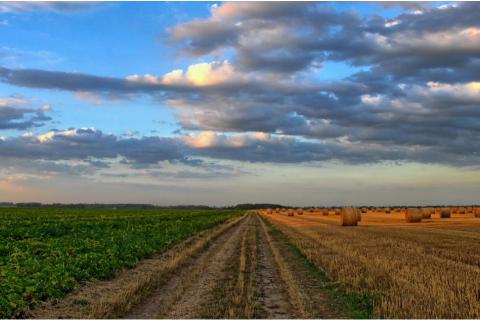Topics and Regions
Rick has over 40 years experience working in the land sector in Southern Africa. He is part of the Land Portal knowledge engagement team working to research and develop knowledge resources including data stories, blogs and in-depth country profiles for Southern, Central and Eastern Africa.
Rick is also a Senior Research Associate with Phuhlisani NPC - a South African land sector NGO and the curator of specialist Southern African land news and analysis website https://knowledgebase.land
He tweets on land related issues Twitter account https://twitter.com/KnowledgebaseL
He has a PhD from the University of Cape Town. His research in Langa, Cape Town features as the central case study in a recent book Urban Planning in the Global South (2018), co-authored with the late Vanessa Watson, which examines the on-going contestations over land and housing in the rapidly growing cities of the global South.
Details
Location
Contributions
Displaying 181 - 190 of 464Illegal miners started Mpumalanga coal mine fire weeks ago – it’s still burning today
This is what it looks like when unregulated, illegal mining meets governance failure – a fire in a coal mine that has been burning for weeks, leaving nearby communities choking in the fumes. Perhaps most worryingly, nobody knows the extent to which fires may be burning underground.
What do noxious fumes, underserved communities, criminal coal mining rackets, governance failures and one of the largest corporate thermal coal producers and exporters in South Africa have in common?
Oil exploration in DR Congo peatland risks forests, climate and local communities
- The Democratic Republic of Congo is putting 16 oil exploration blocks up for auction, including nine in the peatlands of the Cuvette Centrale.
- Environmentalists warn that oil exploration and infrastructure for production could release huge amounts of carbon stored in the peatland and threaten the rights of local communities.
- The Congolese government says it needs to exploit its natural resources in order to generate income to develop the country, much as countries in other parts of the world have done before it.
Last month, the
Black farmers in South Africa need support: how it could be done
Nick Vink and Johann Kirsten
Most countries in both the rich and the developing world have some sort of programme to help early career farmers (mostly, but not exclusively young people) to get established in a farming or agribusiness enterprise. South Africa sticks out like a sore thumb, even against many African countries, in not having such a programme.
In our view, subsidies for black farmers in South Africa are justified. This is because they would help deliver a more inclusive agricultural sector and correct past racial biases.
South Africa: R17.3bn agriculture, land reform budget must also benefit people in rural areas
Ido Lekota is a former Sowetan political editor.
Agriculture, Land Reform and Rural Development Minister Thoko Didiza tabled a R17, 3 billion budget in the past week to help support food security in the country.
Didiza said the money will be distributed through a range of programmes, including the commercialisation of black farmers through land development support.
"If you look at the R17.3bn of our budget, the majority of that is transferred to provinces dealing with food security," she said.
Conflicts threaten food security and biodiversity. How can we overcome these challenges?
The consequences of the Russian invasion of Ukraine on food security and biodiversity go beyond the countries’ borders. The prices of food and other essential agricultural commodities skyrocket and go beyond the capacity of many. As a result, more people are vulnerable to hunger. “How to prevent hunger” has become a hot topic, especially as conflict erupts in the breadbasket of the world between Russia and Ukraine, threatening both food security and biodiversity.
We need a revolution in African farming — regenerative agriculture could be the catalyst
Daily Maverick Our Burning Planet: Op Ed by Malik Dasoo
Regenerative agriculture, which involves special techniques to cultivate nurture-rich soils that also trap greenhouse gases, can initially be time and labour intensive. But farmers who stick with it are witnessing enormous returns.
Evicting people from Tanzania’s Ngorongoro conservation area is a bad idea, there are alternatives
The Ngorongoro Conservation Area in northern Tanzania is a spectacular area made up of expansive plains, forests and savanna. It’s also home to a huge caldera – a depression that forms when a volcano erupts and collapses – known as the Ngorongoro Crater.
DRC logging contracts suspended as audit uncovers serious violations
- The publication of an audit of forestry contracts in the Democratic Republic of Congo has exposed serious management failures.
- The audit cites serial breaches of the country’s forest code and more than a dozen violations of a 2002 moratorium on new concessions.
- The DRC’s environment minister announced the immediate suspension of forestry contracts deemed illegal by the audit, saying that where a special commission confirms the Inspectorate General of Finance’s findings, those contracts will be canceled.
- The audit is the first re
How COVID controls hit farmers in 7 low-income countries, most in Africa
Since its emergence more than two years ago, COVID-19 has reached nearly every corner of the globe. It has infected hundreds of millions of people, and overwhelmed health systems worldwide. But its impact goes beyond its direct health consequences.


